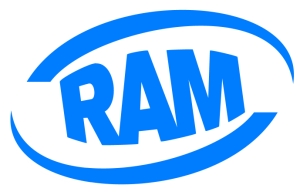The Alliance was a left-wing political party in New Zealand. It was formed at the end of 1991 by the linking of four smaller parties. The Alliance positioned itself as a democratic socialist alternative to the centre-left New Zealand Labour Party. It was influential throughout the 1990s, but suffered a major setback after its founder and leader, Jim Anderton, left the party in 2002, taking with him several of its members of parliament (MPs). After the remaining MPs lost their seats in the 2002 general election, some commentators predicted the demise of the party.

New Zealand is a representative democracy in which members of the unicameral New Zealand Parliament gain their seats through elections. General elections are usually held every three years; they may be held at an earlier date at the discretion of the prime minister, although it usually only happens in the event of a vote of no confidence or other exceptional circumstances. A by-election is held to fill an electorate vacancy arising during a parliamentary term. The most recent general election took place on 17 October 2020.
United Future New Zealand, usually known as United Future, was a centrist political party in New Zealand. The party was in government between 2005 and 2017, first alongside Labour (2005–2008) and then supporting National (2008–2017).
The Kiwi Party was a political party operating in New Zealand between 2007 and 2011. Briefly known as Future New Zealand, it was a breakaway from the United Future New Zealand party and sought to carry on the tradition of Future New Zealand. The party was formed when MP Gordon Copeland left United Future after a dispute over support for the Crimes Amendment Act 2007. At the 2008 general election, the Kiwi Party was unsuccessful, and was not re-elected to Parliament. It did not contest the 2011 general election under its own banner, but the leaders and other members stood for the Conservative Party.

The Republic of New Zealand Party is an unregistered New Zealand political party which seeks to end monarchy in New Zealand. It was a registered party from 2005 to 2009, contesting two general elections in that time and each time receiving the lowest share of the party vote. After deregistration, some members continued in politics under the party name, though since at least 2011 only one person, Jack Gielen, has contested elections under the name.

The New Zealand electoral system has been mixed-member proportional (MMP) since the 1996 election. MMP was introduced following a referendum in 1993. It replaced the first-past-the-post (FPP) system New Zealand had previously used for most of its history. New Zealanders elect their members of parliament (MPs) with two votes. The first vote is for a candidate from an electorate. The second vote is used to elect ranked party lists.

The Residents Action Movement was a political party in New Zealand. RAM described itself as "a mass membership, broad left, grassroots movement of social change". Its national chair was Grant Morgan and its co-leaders were Oliver Woods and Grant Brookes.

The Family Party was a political party in New Zealand. It described itself as a Christian party.
The New Zealand Pacific Party was a Christian political party that existed in New Zealand from 2008 to 2010. The party was founded as a vehicle for former Labour MP Taito Phillip Field, who was subsequently convicted for bribery and corruption. It aimed to represent Pacific Island communities within New Zealand, and support Christian and "family values" and social justice.

Cannabis political parties are generally single-issue parties that exist to oppose the laws against cannabis.
Focus NZ was a political party in New Zealand. Founded as "NZ Rural", the party was based in Northland and represented the interests of business owners, producers and provincial communities. Areas of concern include the exchange rate and empowerment of communities.

1Law4All was a registered political party in New Zealand. The party was launched in June 2013 and was temporarily led by Tom Johnson. The party supported removing references to the Treaty of Waitangi from legislation, abolition of the Waitangi Tribunal and Māori electorates, repeal of the Marine and Coastal Area Act 2011, and withdrawal of New Zealand from the UN Declaration on the Rights of Indigenous Peoples. The party never contested an election and was deregistered in May 2015.

The Internet Party was a registered political party in New Zealand that promoted Internet freedom and privacy. The party was founded in January 2014 with the financial support and promotion of internet entrepreneur Kim Dotcom, and was first led by former Alliance MP Laila Harré, then by citizen journalist Suzie Dawson.

The NZ Independent Coalition is a former political party in New Zealand. The party was founded in January 2014 by Brendan Horan Horan was expelled from New Zealand First in December 2012 following accusations of taking money from his dying mother's bank account and spending it on gambling. Horan acted an independent Member of Parliament after expulsion, and proposed starting a party in January 2013. In February 2014, the party registered a logo with the Electoral Commission. On 18 June 2014, it applied for registration. The party was registered on 24 July.
The Ban 1080 Party was a political party in New Zealand that opposed the use of sodium fluoroacetate (1080) poison, which is widely used in New Zealand for controlling mammalian pests such as possums and rats. The party was founded in 2014 by Bill Wallace and its co-leaders were Bill Wallace and Mike Downard. The party was registered by the Electoral Commission in 2014 and deregistered in February 2018.

The Civilian Party was a frivolous political party founded by political satirist Ben Uffindell. It contested the 2014 New Zealand general election before disbanding. The party was deregistered at its own request on 5 May 2015.

The New Zealand People's Party is a political party in New Zealand. The party was established in 2015 and has a particular focus on the rights of immigrants. It operated as an independent party for a 2016 by-election and the 2017 general election, and as a component party of Advance New Zealand for the 2020 election. The party's leader, as of September 2020, is Anil Sharma.

Vision NZ is a nationalist political party in New Zealand led by Hannah Tamaki, the co-leader of the fundamentalist Christian movement Destiny Church. The party was announced in May 2019. It contested the 2020 New Zealand general election both for electorate seats and the party list vote, receiving 0.1% of the party vote and winning no seats.

The Sustainable New Zealand Party, also called Sustainable NZ, was a political party in New Zealand. An environmentalist party, it had a focus on water, native species, and sustainable economic growth. It contrasted itself with the larger Green Party by claiming to not be aligned with either side of the political aisle and being prepared to work with either the National Party or the Labour Party.












